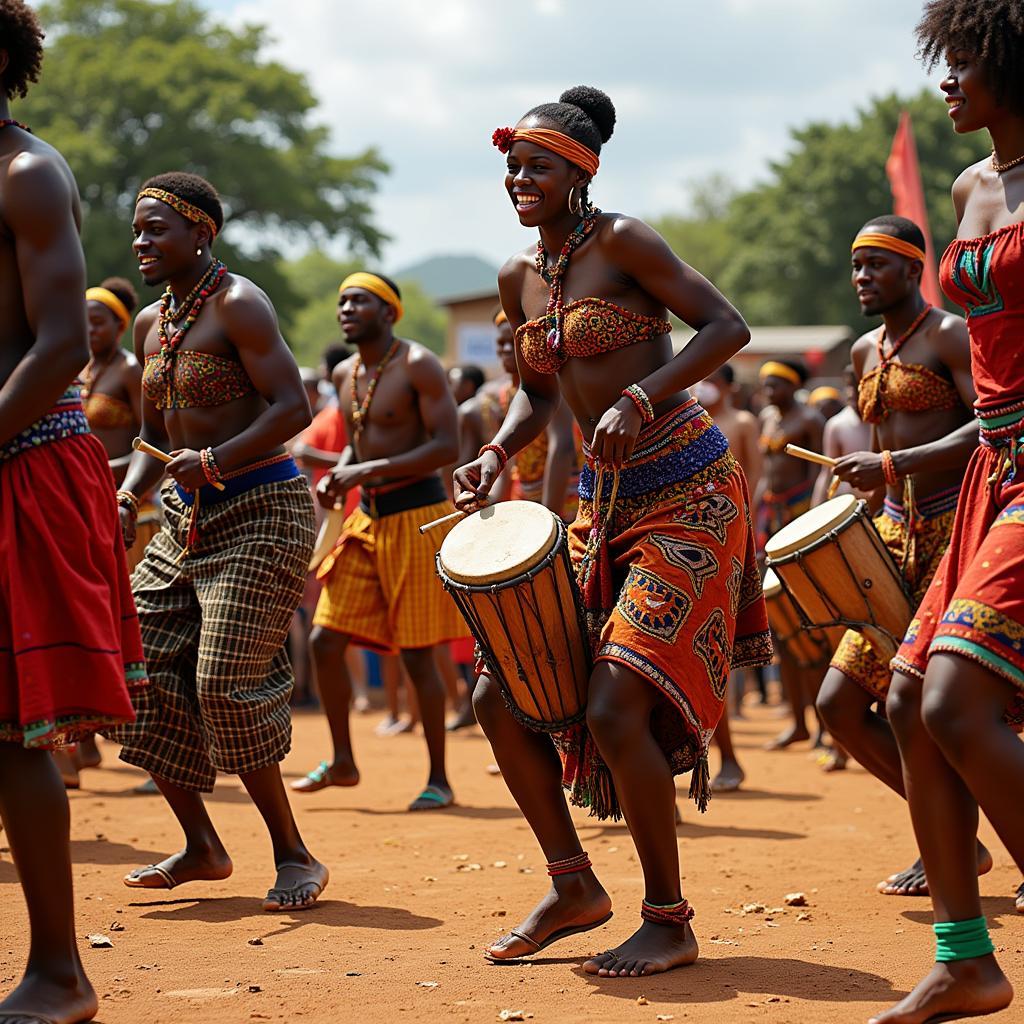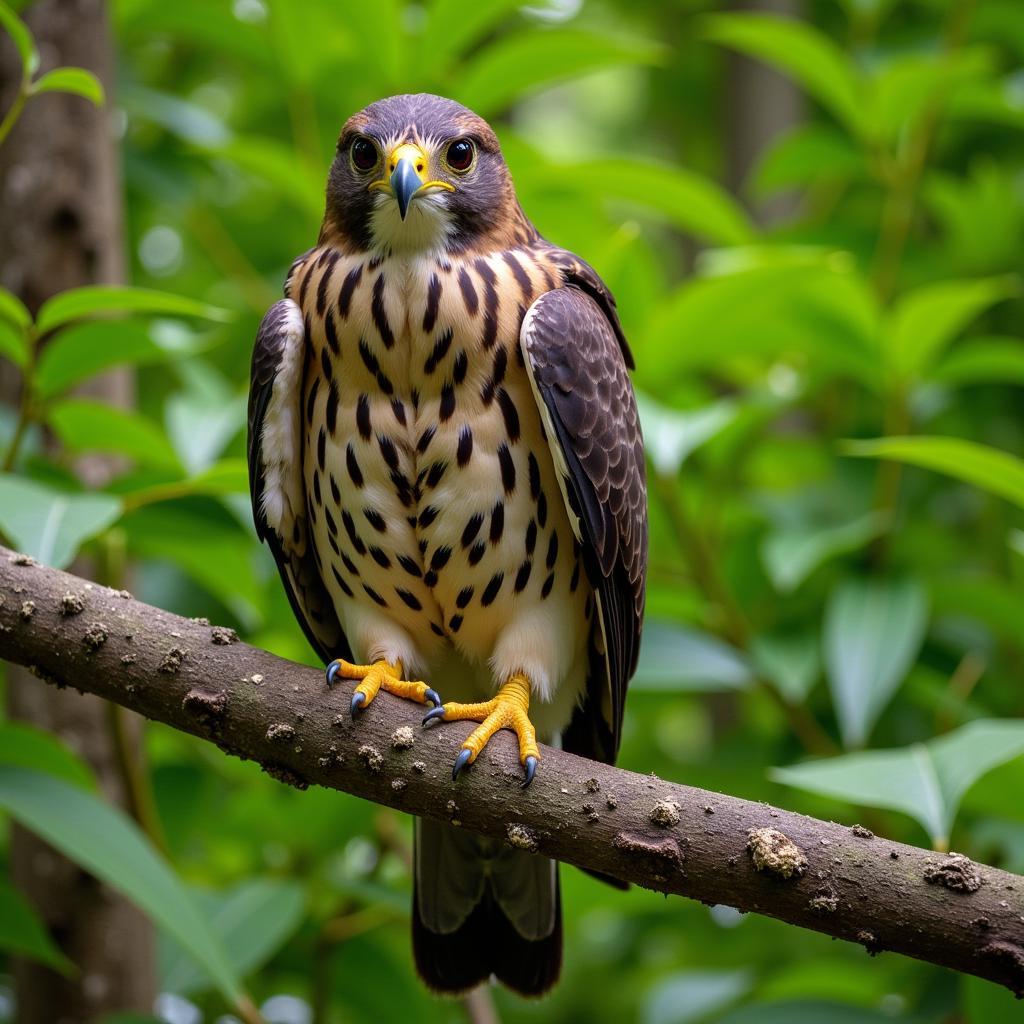African Elephant Breeding Age: Unveiling the Giants’ Reproductive Journey
The African elephant, an iconic symbol of the savanna, holds a special place in the world’s collective imagination. These majestic creatures captivate us with their size, intelligence, and complex social structures. One aspect of their lives that often sparks curiosity is their reproductive cycle, particularly the question of “African Elephant Breeding Age.” Understanding when these gentle giants reach sexual maturity offers valuable insights into their conservation and long-term survival.
Factors Influencing Breeding Age
African elephants, categorized into savanna (Loxodonta africana) and forest (Loxodonta cyclotis) elephants, exhibit variations in their breeding age. While genetics plays a role, environmental factors significantly influence when they reach sexual maturity.
1. Species and Size
Savanna elephants, generally larger than their forest-dwelling counterparts, tend to mature later. This difference in size and corresponding metabolic rates contribute to the variation in breeding age.
2. Resource Availability
Regions with abundant food and water resources often see elephants reaching sexual maturity earlier. Ample nutrition accelerates their growth and development, leading to earlier breeding. Conversely, elephants in areas with scarce resources may experience delayed maturity as their bodies prioritize survival over reproduction.
3. Social Cues and Hierarchy
The intricate social structures of elephant herds also play a role in breeding. Female elephants typically reach sexual maturity earlier than males, but their position within the herd hierarchy can influence when they first breed. The presence of older, dominant females can suppress the reproductive cycles of younger females.
Male vs. Female Breeding Age
Female Elephants
- Onset of Sexual Maturity: 8-12 years old
- First Calf: Usually between 10-15 years old
- Peak Reproductive Years: 25-45 years old
Female elephants experience estrus cycles, similar to a menstrual cycle, roughly every 16 weeks. However, they are only receptive to mating for a short period during each cycle.
Male Elephants
- Onset of Sexual Maturity: 10-12 years old
- Musth: Periodically from around 25 years old
- Successful Breeding: Often not until 30 years old or older
Male elephants undergo “musth,” a hormonal state characterized by heightened testosterone levels, aggression, and increased sexual activity. While they may reach sexual maturity earlier, successful breeding often occurs later due to competition from older, more dominant bulls.
Conservation Implications
Understanding the breeding age of African elephants is crucial for their conservation. Poaching, habitat loss, and human-wildlife conflict pose significant threats to their populations. By knowing when elephants reach reproductive maturity, conservationists can:
- Develop targeted protection strategies: Efforts can focus on safeguarding breeding herds and supporting the survival of calves.
- Implement effective anti-poaching measures: Protecting mature breeding individuals is vital for maintaining genetic diversity and population stability.
- Create sustainable land management practices: Ensuring access to adequate food and water resources promotes healthy reproductive rates.
Understanding the delicate balance of factors influencing “African elephant breeding age” is essential for ensuring the long-term survival of these magnificent creatures. Through research, conservation efforts, and responsible tourism, we can contribute to the preservation of African elephants for generations to come.
FAQs about African Elephant Breeding Age
1. How often do African elephants give birth?
African elephants have the longest gestation period of any mammal, lasting around 22 months. Females typically give birth every 3-6 years.
2. What is the average lifespan of an African elephant in the wild?
In the wild, African elephants can live for 60-70 years.
3. Do African elephants mate for life?
Unlike some animal species, African elephants do not form lifelong mating pairs. Both males and females may have multiple partners throughout their lives.
4. How does poaching affect African elephant breeding?
Poaching not only decimates elephant populations but also disrupts their social structures and removes breeding individuals, hindering population recovery.
5. How can I learn more about African elephant conservation?
For more information about African elephants and how to support their conservation, you can visit reputable organizations like the African Wildlife Foundation or Save the Elephants.
You Might Also Be Interested In:
For further exploration into the fascinating world of African elephants, check out these related articles:
- African Forest Elephant Weight: Discover the size differences between forest and savanna elephants.
- African Elephant Taxonomy: Delve deeper into the classification and subspecies of African elephants.
- African Elephant Breeding Program: Learn about the role of breeding programs in elephant conservation.
Let’s work together to protect these incredible animals. For any inquiries or assistance regarding African wildlife, feel free to reach out to our dedicated team:
Phone: +255768904061
Email: kaka.mag@gmail.com
Address: Mbarali DC Mawindi, Kangaga, Tanzania
We are available 24/7 to provide support and answer your questions.



